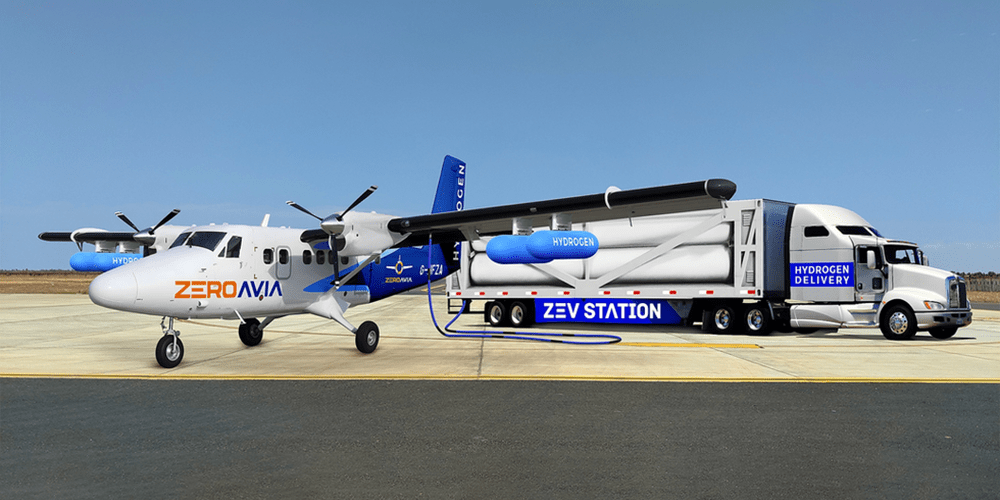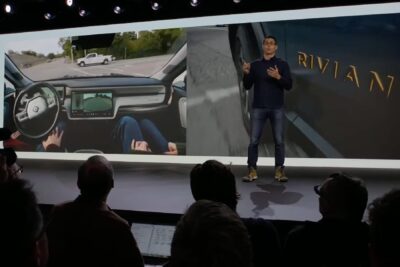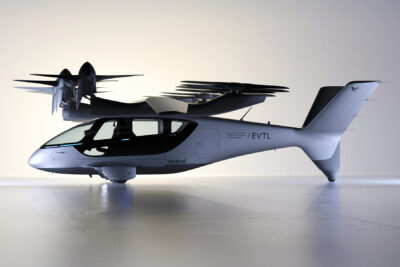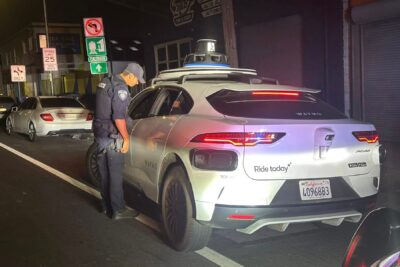ZeroAvia says airports will become hydrogen hubs
ZeroAvia, a company that specialises in hydrogen flights, has announced a new partnership with ZEV Station to develop green hydrogen refuelling infrastructure. The companies will work together on developing a regional airport to showcase the feasibility of hydrogen-powered commercial flights.
ZeroAvia plans flight demonstrations of hydrogen-electric aircraft supported by the jointly developed H2 ecosystem and support from ZEV Station as part of the partnership. The latter will transfer experience in providing gaseous hydrogen for road vehicles to build its first hydrogen airport refuelling system. The company based in Palm Springs has yet to open its first charging test site, slated to go live at the end of May. The first ‘Premier’ ZEV Station with charging and hydrogen is targeted for operation in early 2023.
ZeroAvia, in contrast, has already developed what it calls a “microcosm” of potential H2 operations. The Hydrogen Airport Refueling Infrastructure (HARE), developed as part of the HyFlyer projects in conjunction with the European Marine Energy Center (EMEC), has demonstrated green hydrogen production through to airside fueling, ZeroAvia says.
The company adds that it considers airports “central points of significant demand”. Busy hubs could then produce economies of scale for hydrogen production and thus make it more economical to remove greenhouse gas emissions in other areas such as ground operations, onward transportation links, and proximate industry, so ZeroAvia.
Jesse Schneider, CEO of ZEV Station, agreed when he said there was “great potential to take these learnings towards creating Zero Emission Airports with a large central hydrogen production at scale, an H2-Hub.” If these would generate a significant amount of green hydrogen on-site for both aircraft and vehicles, such hubs could render carbon-based fuel at airports redundant.
Arnab Chatterjee, VP, Infrastructure, ZeroAvia, added: “There is enormous potential for airports to act as hydrogen hubs precisely because there will be significant demand—hydrogen-electric propulsion is the only practical, holistic and economically viable solution to the industry’s full climate impacts.”
ZeroAvia that counts British Airways or United Airlines among its partners, says it plans to work with industry partners to build out the refuelling ecosystems for hydrogen at airports globally. Shell is both an investor in the business and fueling partner, and ZeroAvia has also partnered with Octopus Hydrogen to help power its current flight testing program in the UK. ZeroAvia is also working in partnership to develop one of the world’s first commercial zero-emission routes from London to Rotterdam’s The Hague airport, in conjunction with Royal Schiphol Group, Rotterdam The Hague Innovation Airport Foundation and the airport itself.
The company also provided an update on its latest plane. ZeroAvia will begin flight-testing its hydrogen-electric powertrain in the coming weeks using its Dornier-228 testbed aircraft as part of the HyFlyer II project. The aim is to deliver a fully certified 600kW 19-seat plane for 2024 and is supported by the UK Government. ZeroAvia plans to scale its technology to 40–80 seat aircraft by 2026, with ground tests of the 1.8-megawatt power plant prototypes starting this year.





0 Comments